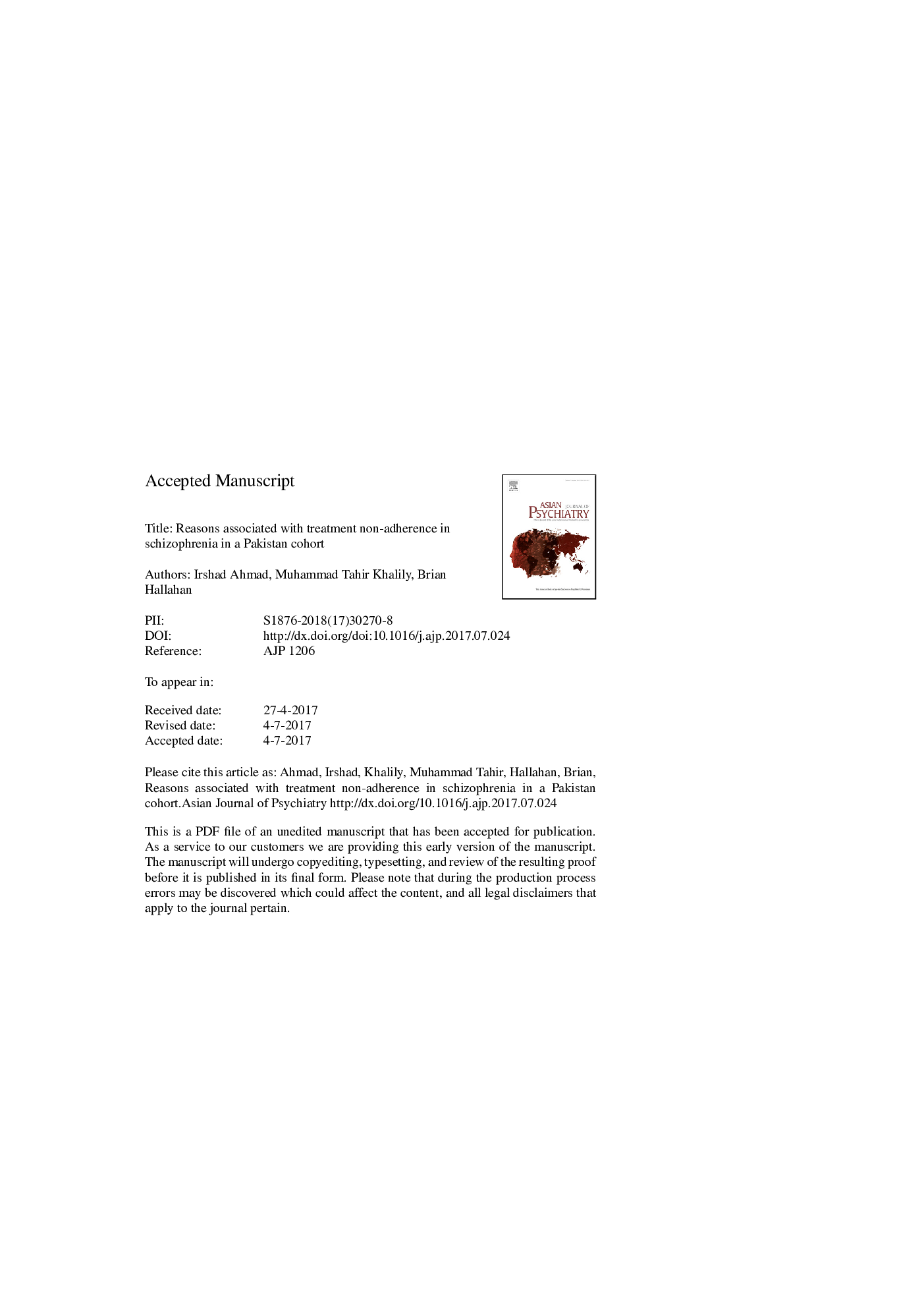| Article ID | Journal | Published Year | Pages | File Type |
|---|---|---|---|---|
| 4929703 | Asian Journal of Psychiatry | 2017 | 20 Pages |
Abstract
Treatment: non-adherence in patients with schizophrenia is the most common reason for a relapse of psychosis. In a cohort of participants in Pakistan who suffered a relapse of psychosis, we aimed to identify the principal factors associated with non-adherence, including any culture specific factors that might not be as significant in other jurisdictions. Semi-structured interviews were undertaken at four psychiatric hospitals in the Peshawar region in Pakistan with 55 participants (44 male and 11 female) diagnosed with schizophrenia, who had suffered a relapse of psychosis subsequent to treatment non-adherence. The five principal documented reasons for treatment non-adherence were: 1) alternative treatment pathway chosen with a traditional faith healers (n = 53, 96.4%), 2) lack of insight (n = 36, 65.5%), 3) poor economic status (n = 33, 60.0%), 4) adverse effects of medications (n = 33, 60.0%) and 5) utilising psycho-active substances as an alternative to psychotropic medications (n = 27, 41.1%). A number of identified factors associated with a relapse of psychosis are potentially modifiable including the provision of a range of pharmacological options including second generation antipsychotic agents, long acting injectable antipsychotics and psycho-therapeutic interventions including psycho-education. These interventions should prove cost effective and be associated with reduced relapse rates of psychosis.
Keywords
Related Topics
Life Sciences
Neuroscience
Neuroscience (General)
Authors
Irshad Ahmad, Muhammad Tahir Khalily, Brian Hallahan,
